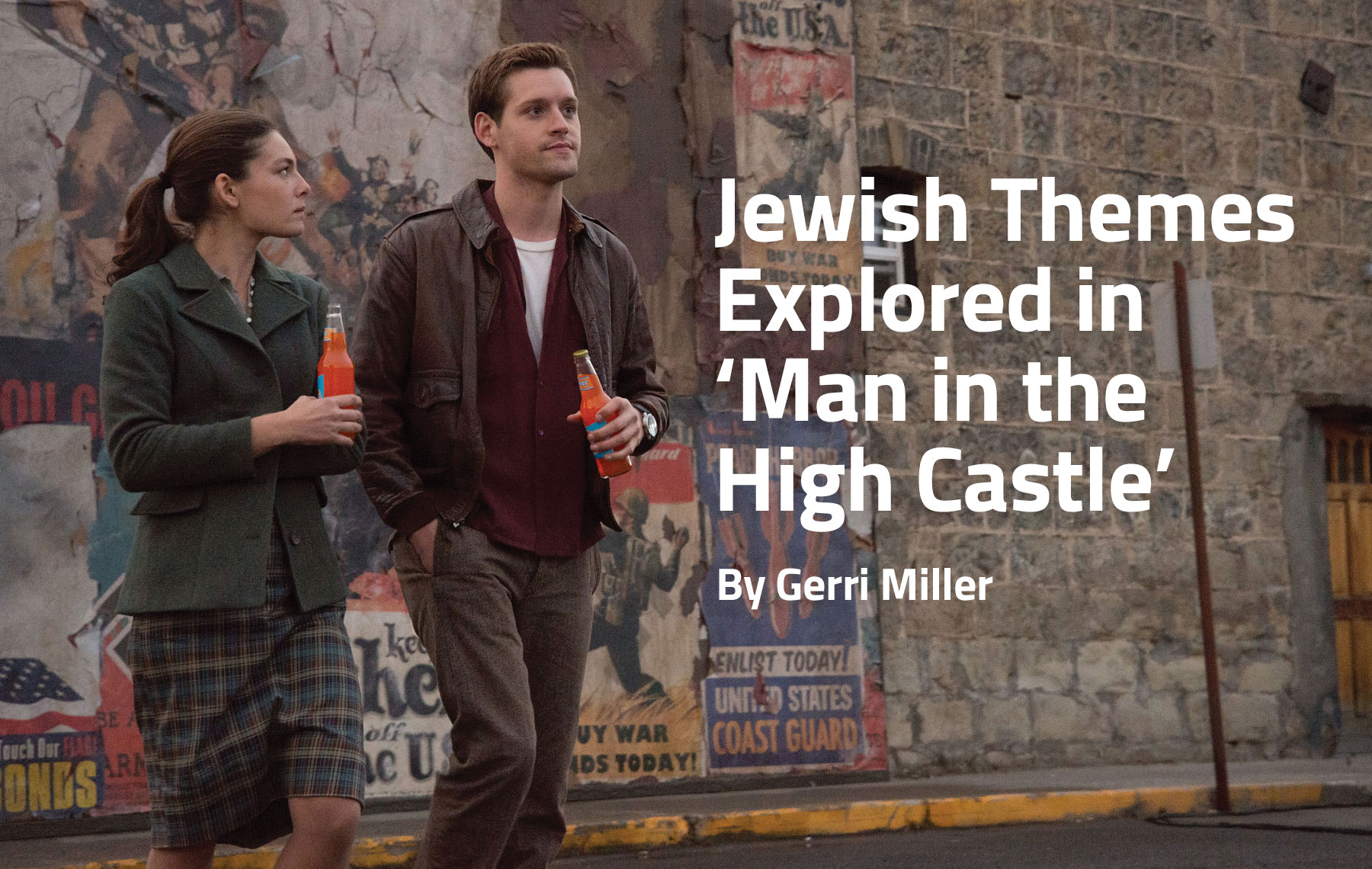
Set in a chilling alternate reality in which the Nazis and the Japanese won World War II and have conquered and divided the United States, “The Man in the High Castle” is now streaming its third season on Amazon. The series, based on Philip K. Dick’s 1962 novel, continues to explore multiple storylines, traveling to the Nazi-occupied East, the Japanese-ruled West and a Neutral Zone in Colorado.
“Season 3 embraces a deeper dive into our core characters. The season as a whole is a lot more character-centric than our past seasons,” writer and executive producer Kalen Egan told the Journal. He has been with the show since its inception, working with Dick’s daughter Isa Hackett Dick on the show’s development. “We’ve added new elements, including some ideas Dick came up with for a sequel that he never got around to writing,” Egan said. “He had some chapters that we pulled from. The beginning of that book would have gone into the Nazis developing a [dimension-travel] portal.”
There are new characters, including an Irish former resistance fighter-turned-smuggler named Wyatt, played by Jason O’Mara, who joins forces with Juliana (Alexa Davalos). “He’s been through it all,” Egan said, adding that he represents “what was going on in Europe during World War II, something we haven’t seen.”
Spoiler alert: There is also the surprising return of another key character. Frank Frink (Rupert Evans), last seen in the penultimate episode of Season 2 setting a car bomb and being caught in its explosion, reappears in the fourth episode, limping and scarred, but resolute in his commitment to the resistance — and to Judaism.
An artist whose grandfather was Jewish, Frank wanted nothing to do with the Jewish faith and the dangers it posed, and kept his bloodline secret. But this season, while living in Sabra, a secret community of Jews posing as Christians, he comes to embrace the religion, with his Jewish friend Mark Sampson (Michael Gaston) as his spiritual guide.
Mark “articulates what Frank is running from and what he believes is the only way to survive, and guides him toward faith and the meaning of that faith,” Egan said. “We saw Frank step into some of that in Season 1 but it goes further this year.” It culminates in a bar mitzvah ceremony in the sixth episode.
A lot of preparation went into it, Egan said. “We have some writers on the staff who are Jewish and [executive producer] David Zucker is Jewish. But to build that bar mitzvah scene properly, we depended on independent researchers.” he said.
“If we can tell a story about a character like Frank and his exposure to a faith that he thought was dangerous or couldn’t identify with, but then finding the value in it, I think that becomes a lesson for everybody.”
— Kalen Egan
“We brought in a rabbi, and she was instrumental in making sure that it rang true and served the story. Members of the prop crew brought in their personal prayer books. During the prep process, we broke challah bread, [said] prayers, and got a very intimate exposure to that ritual,” he added. “It was a powerful way to immerse ourselves, and it really served the scene. I wasn’t there for the actual shoot, but everybody said it was emotionally overwhelming.”
The bar mitzvah scene is intercut with another scene of a Nazi celebration: One scene shows the value of tradition and history, and the other shows the Nazis hellbent on eradicating the past.
Something occurs at the end of Episode 9 regarding Frank’s character, which we won’t give away here. “It came about organically following the narrative we were trying to tell between [Frank] and the Japanese police inspector, Kido,” Egan said. “Frank becomes a powerful symbol of the life he’s led and the things he’s learned, imbued with spirituality and self-reckoning and force.”
Shaping Frank’s storyline gave Egan the chance to present very specific circumstances in a way that feels universal for the audience. “If we can tell a story about a character like Frank and his exposure to a faith that he thought was dangerous or couldn’t identify with, but then finding the value in it, I think that becomes a lesson for everybody,” he said
“The Man in the High Castle” has been renewed for a fourth season, which will expand the show’s world with new locations and some new characters. “We’re still concentrating the story in America but get glimpses of new places,” Egan said.
“We’re sticking with the characters that remain in the main story but much like we introduced the secret Jewish community this season, we’re also introducing new communities in Season 4. We’ll see new parts of San Francisco,” he said.
The Jewish storyline and Sabra will continue, “in a way that isn’t exactly expected. We’re still piecing it together and things change every day,” he added. “But some of the characters from Sabra become essential pieces of the next season.”
According to Egan, the show’s mission is to provocatively raises moral and ethical questions without providing clear answers. “As long as we keep asking those lingering questions in new and intriguing and powerful ways, it’s up to people to consider them on their own,” he said. “Every year we think the world can’t possibly get any closer to the alt-reality that we’re depicting, and every year it does.”
“The Man in the High Castle” is currently streaming on Amazon Prime video.






















 More news and opinions than at a Shabbat dinner, right in your inbox.
More news and opinions than at a Shabbat dinner, right in your inbox.